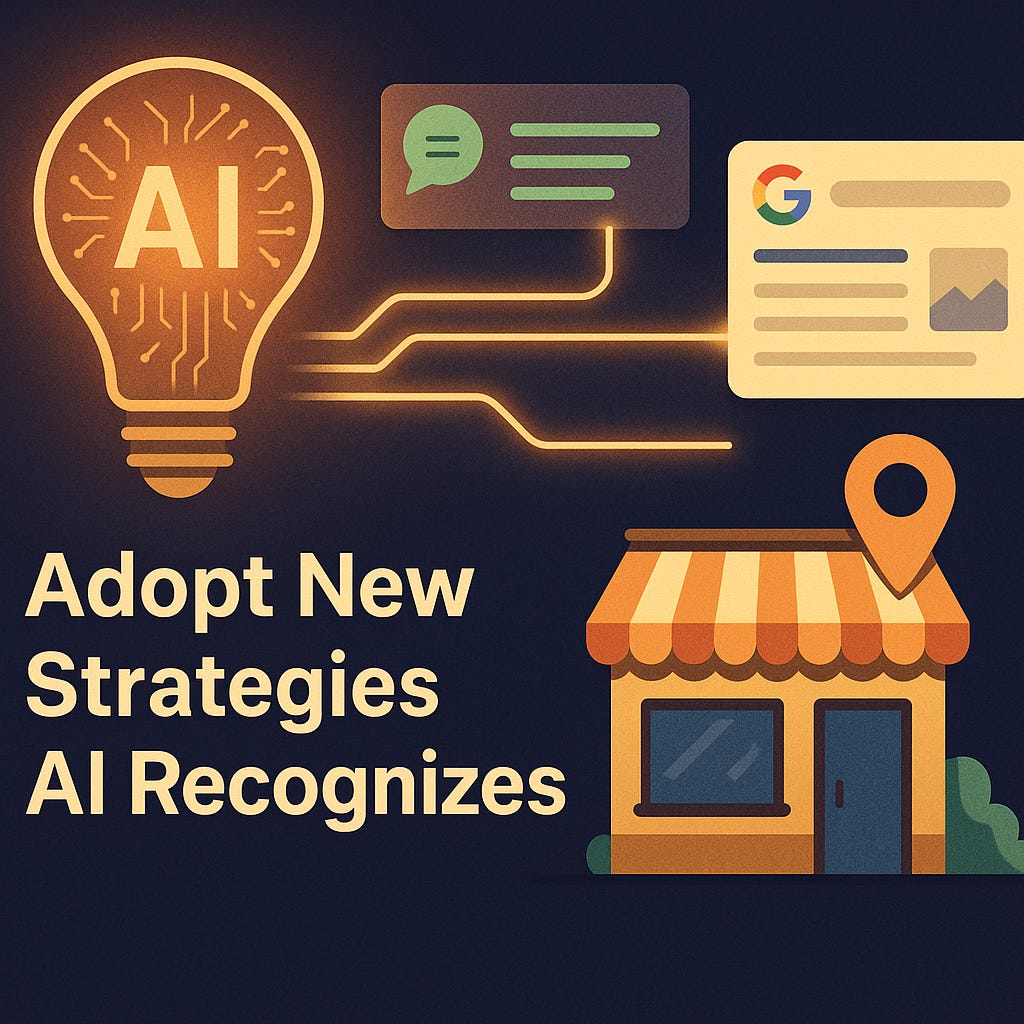How Savvy Business Owners Can Lead: Mastering Visibility in the Age of AI Search
What Today’s Leading Experts Recommend for Earning Attention, Engagement, and Results Beyond Traditional Search
The rise of AI platforms like ChatGPT and Google’s AI Overviews is rewriting the rules for how customers discover local businesses. If you want your business to remain in the spotlight and attract valuable new clients, it’s time to adopt new strategies—strategies that AI recognizes.
Visibility and Engagement: A New Standard
For over two decades, digital marketers have focused on appearing at the top of Google’s search results. But that’s rapidly changing. Barry Schwartz, a leading voice in SEO and editor of Search Engine Roundtable, underscores that it’s no longer enough to target blue links on a search page. Businesses should now aim for visibility in the AI-generated answers provided by chatbots and voice assistants—because that’s where more customers are looking first.
Similarly, Rand Fishkin, well known as the founder of Moz and SparkToro, stresses that the most effective marketers are shifting away from “website traffic” as their primary success metric. Instead, they’re focusing on meaningful visibility—ensuring their business is seen, cited, and engaged with by the right audiences whenever AI delivers results.
Practical Steps for Modern Visibility
1. Standardize and Strengthen Your Online Presence
AI platforms rely on data from dozens of sources—Google, Yelp, your website, social media—to decide which businesses to recommend. Consistency is critical.
Make sure your business name, address, and phone number (NAP) are identical everywhere online.
Audit your Google Business Profile, local directories, and website for accuracy at least quarterly.
Example:
A local auto repair shop named “Precision Motors” lists itself as “Precision Motor Works” on Facebook and “Precision Motors” on Google, confusing AIs and resulting in lower visibility.
2. Prioritize Content That Answers Real Questions
AI chatbots tend to surface content that responds directly to user intent. Consider the language potential customers use when searching, then address those questions on your site.
Add FAQ sections that answer questions like “Do you offer same-day appointments?” or “What are your pricing options?” in straightforward terms.
Structure your content for both clarity and depth—AI rewards both.
Example:
A dental practice whose FAQ page clearly answers, “Do you accept new patients?” is more likely to appear in AI-generated responses for families moving to town.
3. Cultivate Authentic Reviews and Mentions
User-generated content—like reviews and positive social media posts—builds trust. AI looks for businesses that are talked about and recommended by real people.
Regularly request customer reviews and respond to them thoughtfully.
Encourage satisfied clients to mention your business on blogs, forums, and social sites.
Example:
If a salon earns several five-star reviews mentioning specific services (“best balayage in Salem!”), AI platforms will be more inclined to recommend them to people searching for hair coloring services.
4. Use Visuals and Metadata Intelligently
High-quality, descriptive images bolster credibility. AI platforms often scrape captions and metadata to better understand and categorize your business.
Upload professional photos of your storefront, team, and products.
Include meaningful captions—“Owner Jane Smith welcomes customers at the South Salem bakery”—not just “Storefront.”
Example:
A restaurant with current photos labeled “outdoor seating available at Luna Bistro, Salem OR” stands out when users ask AI about local al fresco dining options.
5. Stay Proactive and Curious
Test your business’s presence by interacting with AI. Ask, “Who is the best [your service] in [your city]?” Note which businesses appear and why. If yours does not, review your content and update as needed.
The Bottom Line
In this new era, visibility is more than just a ranking on Google—it’s about being recognized and recommended by the AIs that an increasing number of people use for everyday decisions. By keeping your business data consistent, answering real questions, encouraging authentic engagement, and being proactive about your digital presence, you set yourself up to lead in both the search and AI-driven future.
Remember: those who adapt early to these new habits will become the businesses people—and AIs—turn to first.


